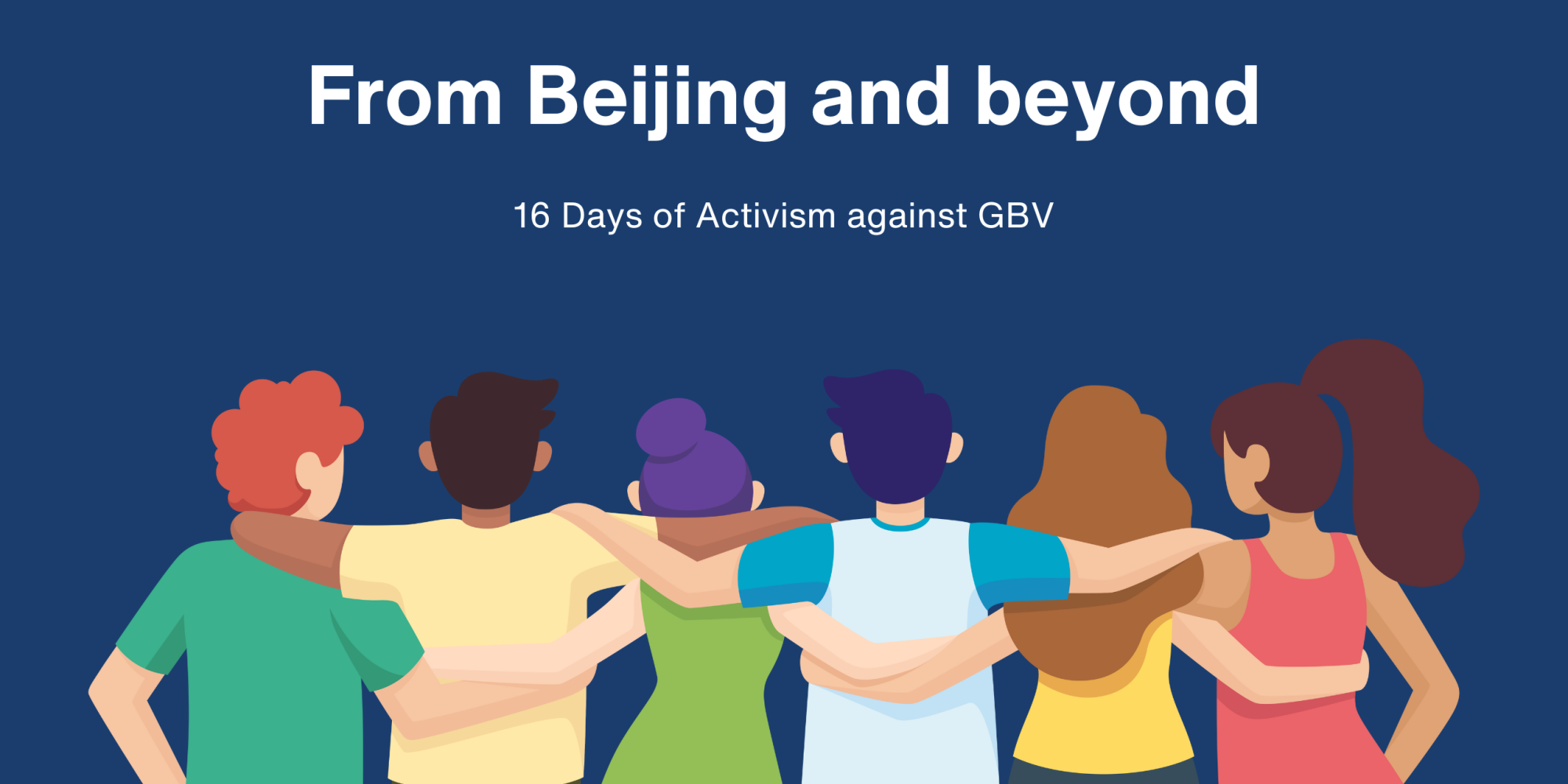
We must remember that feminist principles and approaches are not mere theory. They include practical strategies for shaping more effective and just humanitarian responses. At the heart of this work is leadership of affected communities, especially leadership that is by women, for women, and with women.
As we mark this year’s 16 Days of Activism against Gender-Based Violence (GBV) we are also looking towards a significant milestone: the 30th anniversary of the Beijing Declaration and Platform for Action. Adopted at the 1995 Fourth World Conference on Women in Beijing, the Platform for Action outlined a comprehensive strategy for achieving gender equality and the empowerment of women worldwide.
While progress has been made in some areas in the last three decades, we are still far from realising the vision of a world free from violence against women and girls. The reality is that gender inequality and GBV remain pervasive, including in contexts affected by humanitarian crisis. But is the humanitarian system sufficiently equipped to do what it takes to promote the rights and leadership of crisis-affected women and girls and to better address GBV in emergencies?
A system in need of transformation
The world is facing an unprecedented number of humanitarian crises. From conflict and climate change to economic inequality and pandemics, the need for effective and equitable humanitarian response is arguably greater than ever. However, despite the strong normative frameworks and rhetorical commitments to women’s rights and empowerment that exist across the UN system, and despite empirical evidence on the value of advancing feminist principles to improve action on key humanitarian priorities, many challenges to feminist-informed humanitarianism remain.
These challenges link to systemic issues within humanitarian response that both reflect and reinforce norms and practices that undermine transformative change. Feminist principles and approaches tend to get stuck at the level of technical programme interventions, rather than the more meaningful level of structural change. There is a need to move beyond interventions that use feminist principles as a reference point for achieving specific programmatic objectives (e.g. equal numbers of males and females served in a programme), towards tactics that focus more on feminist practice as a way for systems and structures to achieve core feminist (and humanitarian) outcomes.
Applying feminist approaches to humanitarian action
A feminist lens can add a crucial layer of analysis and action to humanitarian response. It demands a critical look at the power dynamics, assumptions, and practices that often perpetuate gender inequalities. Feminist principles and approaches emphasise:
- Transforming unequal power relations between men and women.
- Ensuring representation and leadership of women and girls.
- Promoting bodily autonomy and rights of women and girls.
- Ensuring safety for women and girls.
- Taking an intersectional approach.
- Promoting social justice for all oppressed groups.
These principles and approaches are clearly linked to many broader humanitarian goals for and approaches to humanitarian action. Some of these include increased accountability to and protection of affected populations; better representation and leadership of affected populations through localisation efforts; ensuring centrality of protection; working across the humanitarian-development-peace nexus; and improving data collection, protection, and usage for better humanitarian response.
Developing a framework for action
Applying feminist principles and approaches for transformative change in humanitarian response requires a framework for action—one that is not just about rhetorical commitments to feminist principles, but that supports active engagement in feminist ways of working. This places the focus on process—the how of building a feminist humanitarian response—and on the impact of that process for women and girls and communities affected by humanitarian crises.
Humanitarian leadership, humanitarian coordination, and humanitarian donors are key focal areas for shifting to more meaningful feminist ways of working in humanitarian response. Developing strategies for implementing and expanding feminist actions within and across these areas is a starting point for more effectively advancing humanitarian outcomes through the lens of feminist theory. Focusing on these areas can also support efforts to cascade learning and capacity on feminist ways of working throughout the humanitarian ecosystem.
This 16 Days of Activism is an opportunity to renew our commitment to the vision set forth in the Beijing Declaration and Platform for Action. We must remember that feminist principles and approaches are not mere theory. They include practical strategies for shaping more effective and just humanitarian responses. At the heart of this work is leadership of affected communities, especially leadership that is by women, for women, and with women.